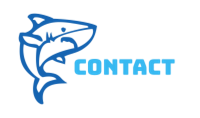Consequences of antimicrobials and antiparasitics administration in fish farming for aquatic ecosystems
Aquaculture is an important source for food, nutrition, income and livelihoods for millions of people around the globe. Intensive fish farming is often associated with pathogen outbreaks and therefore high amounts of veterinary drugs are used worldwide. As in many other environments, mostly application of antimicrobials triggers the development of (multi)resistant microbiota. This process might be fostered by co-selection as a consequence of the additional use of antiparasitics. Usage of antimicrobials in aquaculture does not only affect the cultured fish species, but - to a so far unknown extent - also aquatic ecosystems connected to fish farms including microbiota from water and sediment as well as its eukaryotes. Effects include increases in the number of (multi)resistant microbes, as well as complete shifts in microbial community structure and function. This dysbiosis might have pronounced consequences for the functioning of aquatic ecosystems.
Thus, in the frame of this project we want to study consequences of antimicrobial/-parasitic application in aquaculture for the cultured fish species as well as for the aquatic environments. To consider the variability of aquaculture practices worldwide four showcases representing typical systems from the tropics, the Mediterranean and the temperate zone will be studied including freshwater and marine environments. For one showcase a targeted mitigation approach to reduce the impact on aquatic ecosystems will be tested.
Keywords
Aquaculture; Antibiotics; Antiparasitics; Microbiome; Antibiotic Resistance
Achievements so far
In the first phase of the CONTACT project, three successful flagship studies were carried out under controlled conditions, showing visible effects on the gut microbiome of fish during antibiotic administration, with subsequent regeneration differing from the control group.
The next phase of the project will focus on analysing the functional consequences of the observed microbiome changes in the treated fish and non-target organisms. Transgenerational effects will be investigated by studying the fish microbiome of the next generation using eggs from parental fish exposed to compounds of interest. Samples from natural environments with aquaculture applications will be screened to identify microbial signatures that respond to compound applications, particularly those that affect the health of target and non-target animals.
If you're interested in scientific publications associated with CONTACT, click here.
